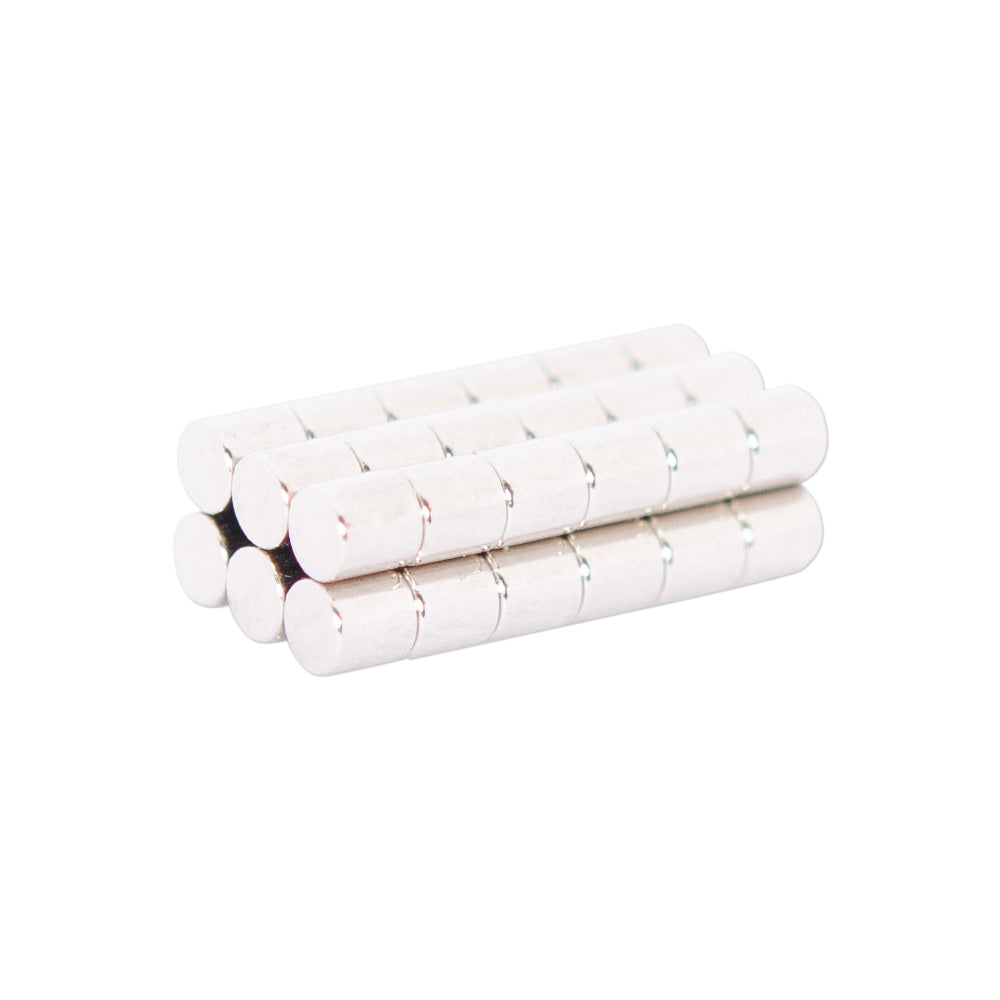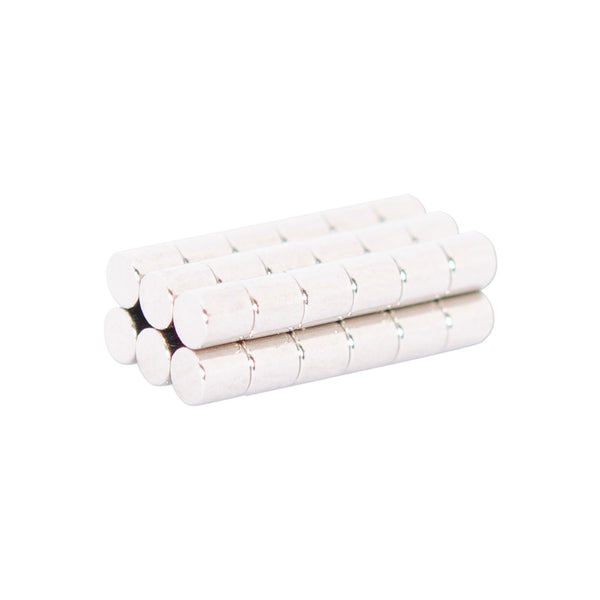Perfect for what I need
Designing and building film based cameras. Using many AMF magnets for these projects.
| Quality |
Rated 5 out of 5
|
|---|---|
| Ease of Use |
Rated 5 out of 5
|
| Value |
Rated 5 out of 5
|
| Strength |
Rated 5 out of 5
|
Product code: C-D6H6-N50-Ni


 Earn 1 point for this product with AMF Magnetics Perks
Earn 1 point for this product with AMF Magnetics Perks
Prices are GST Incl.
Request a Quote for Bulk OrdersAustralia's Leading Supplier
Shipping Worldwide*
30 Day Returns
Same Day Dispatch*

This popular rare earth cylinder has a diameter of 6mm and a height of 6mm. It is an N50 grade rare earth magnet. It has a pull force of 1.59kg. It is identified by the AMF magnet part number C-D6H6-N50-Ni.
This round Rare Earth rod magnet is every craft maker’s dream. It is made from powerful N50 grade Neodymium magnet material. Little permanent magnets like these are the ideal size and strength for embedding into intricate and delicate craft projects such as fine wooden jewellery cabinets, felt creations and cardboard or paper artworks.
Cylindrical Neodymium magnets have more magnetic material between the two opposing poles and this generates a magnetic field that extends for a greater distance from the magnet surface. Furthermore, the magnetic field is more targeted than the field that is produced by most other magnetic shapes. Therefore cylinder magnets are well suited for recessing into surfaces where their powerful and narrow magnetic field can hold the corresponding magnets or attract steel with precision.
This magnet is silver in appearance due to the Nickel coating, which is not only more aesthetically appealing than the dull appearance of ceramic magnets, it also helps to protect the magnet from corrosion.
No FAQ available

This popular rare earth cylinder has a diameter of 6mm and a height of 6mm. It is an N50 grade rare earth magnet. It has a pull force of 1.59kg. It is identified by the AMF magnet part number C-D6H6-N50-Ni.
This round Rare Earth rod magnet is every craft maker’s dream. It is made from powerful N50 grade Neodymium magnet material. Little permanent magnets like these are the ideal size and strength for embedding into intricate and delicate craft projects such as fine wooden jewellery cabinets, felt creations and cardboard or paper artworks.
Cylindrical Neodymium magnets have more magnetic material between the two opposing poles and this generates a magnetic field that extends for a greater distance from the magnet surface. Furthermore, the magnetic field is more targeted than the field that is produced by most other magnetic shapes. Therefore cylinder magnets are well suited for recessing into surfaces where their powerful and narrow magnetic field can hold the corresponding magnets or attract steel with precision.
This magnet is silver in appearance due to the Nickel coating, which is not only more aesthetically appealing than the dull appearance of ceramic magnets, it also helps to protect the magnet from corrosion.
No FAQ available

The Pull Force listed for each magnet is based on lifting 10mm thick steel from a horizontal surface. Magnets on a vertical surface (of 10mm thick steel) are generally able to hold around only 30% of the pull force listed in the product description. This is due to the effects of gravity and the lack of friction between the surface and the shiny magnet. Read More